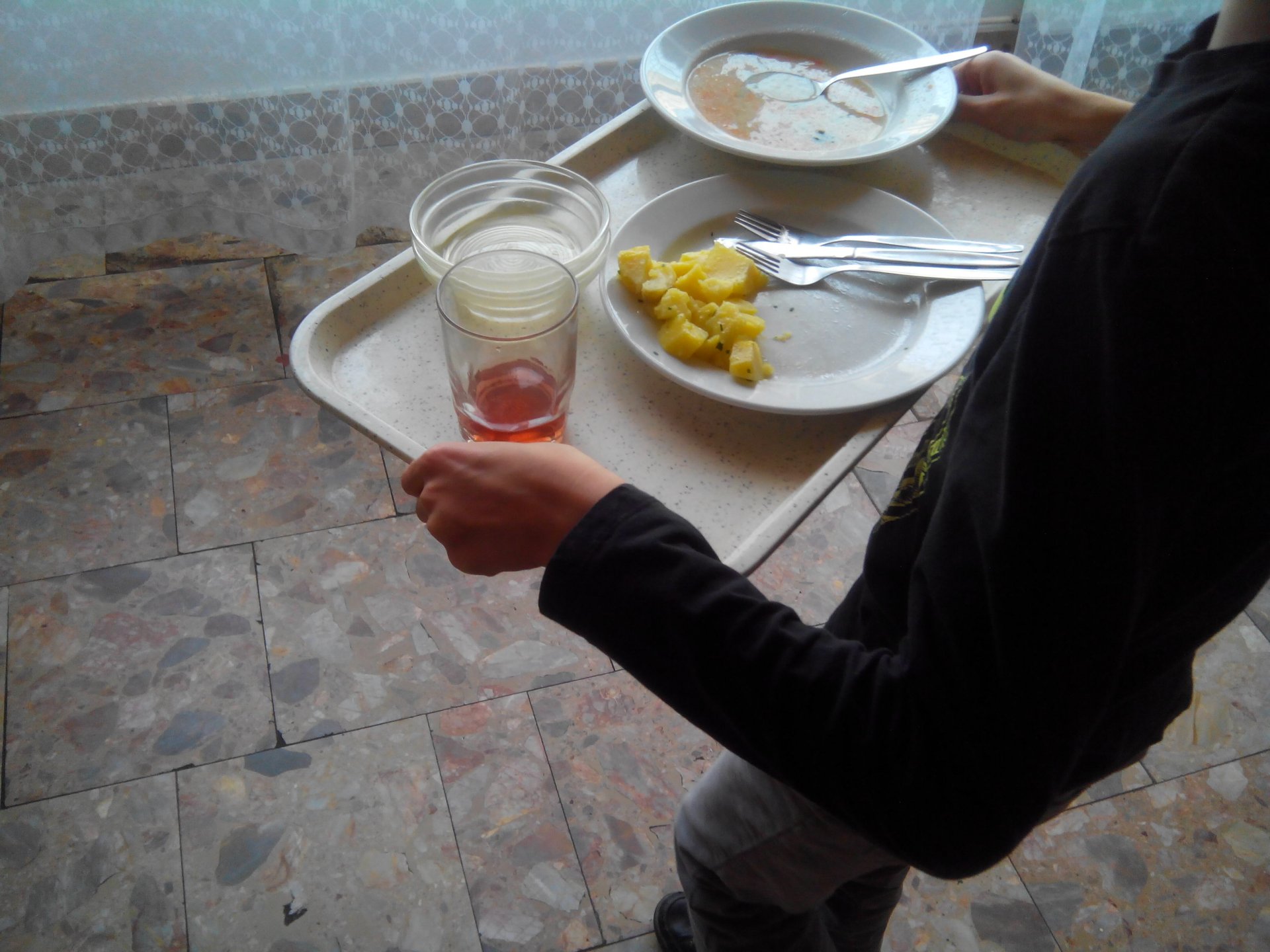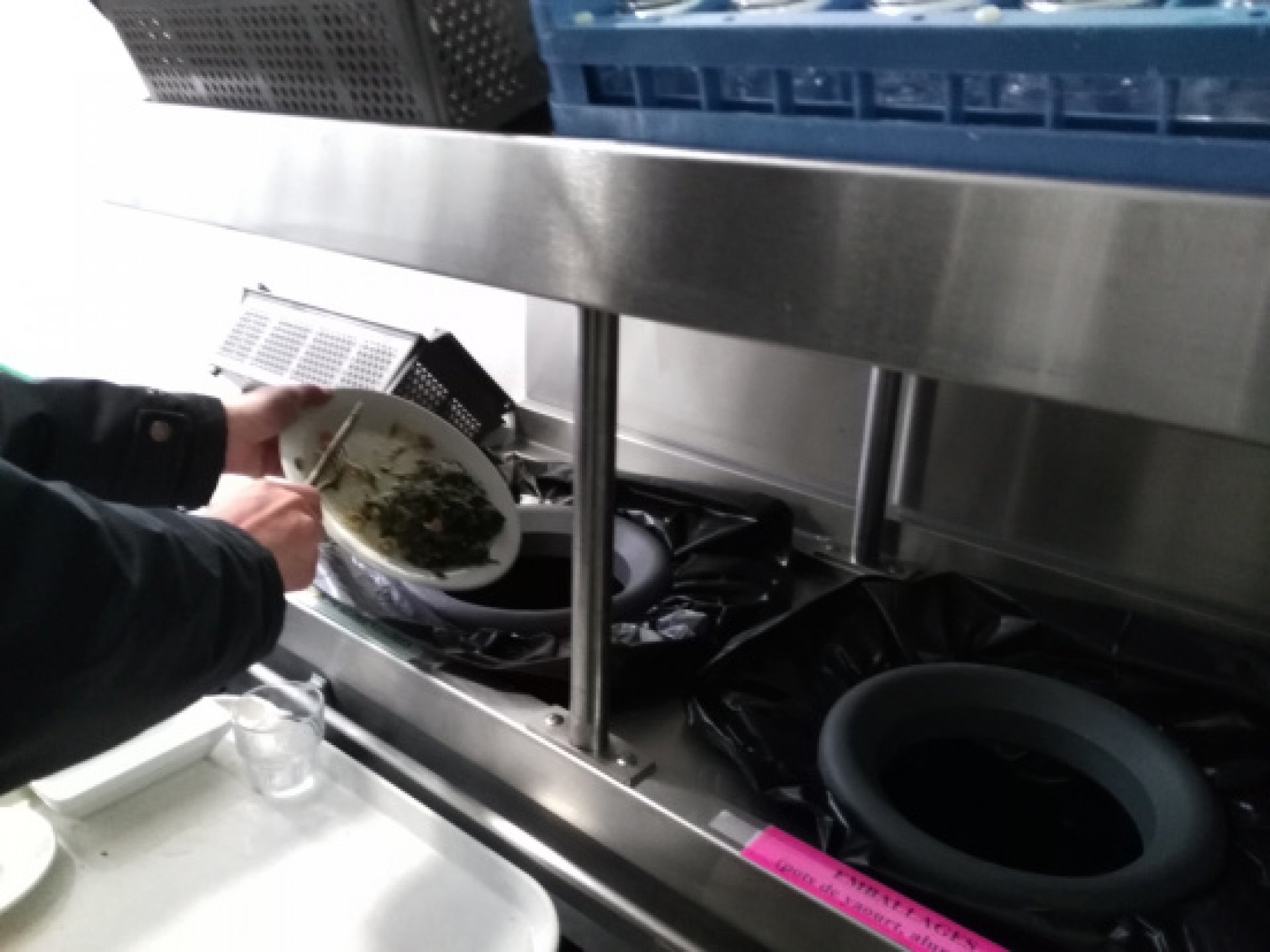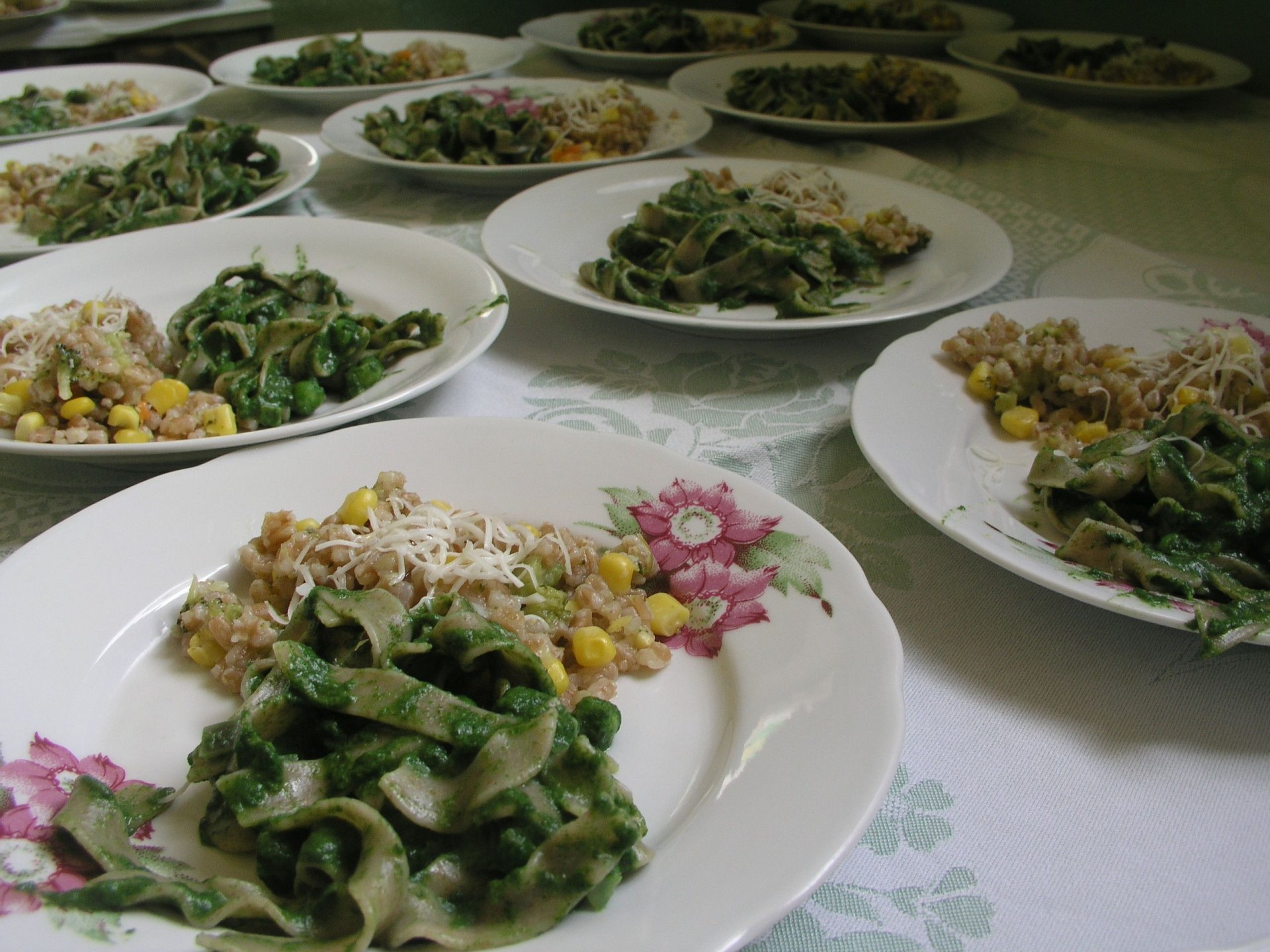A group of high school students from M. R. Štefánik’s Grammar School in Nové Mesto nad Váhom has teamed up with peers from Lycée Saint-Exupéry Lyon. Through email they have shared information on the issue of food waste in their area. They have focused on the problem of uneaten food in school canteens.
France: New measurements to reduce wood waste
The Lycée Saint Exupéry has launched a new system of waste disposal recently. Leftovers from meals in the school canteen are now being disposed of separately in the bins. According to information gained from an expert, the change resulted from the new regulation: each school which generates more than 10 tons of waste is obliged to introduce a waste disposal system.
One of the new measures is that at the end of lunch time, about 1:15 p.m., extra food is redistributed what helps to reduce the amount of food thrown away. Also, students are no more obliged to finish their plates. On the other hand, they have to sort it out at the end of their lunch time. The new disposal system aims at reducing organic waste so as to reduce carbon footprint on earth. The organic waste will now be recycled into compost and the cooking oil into bio-fuel.
From the beginning of March, students have been taught new habits of selecting their waste. To find out how the rules are being put in place at the lycée, students from Primère S3 decided to explore the issue of food waste. They carried out a survey among their classmates, and established a blog to discuss issues regarding food waste. One of their findings is that compulsory sorting out leftovers of food needs more explanation: “In order to make them change their minds, we should explain the usefulness of this innovation. If they understand the reasons, they won’t think that they’re wasting their time anymore. In other words, young generation should understand how important the environment is.” (https://morefoodlesswaste.wordpress.com/ )
Anyway, reporters feel that the new waste disposal system makes students more sensitive towards environmental issues.
Slovakia: Unused food compulsory disposed of as biological waste
Slovak Young Reporters investigated what happens to the food that remains on the plates of students in their school canteen. Mrs. Predinská, canteen head chef, gladly helped and provided them with information on disposal of unused food (leftovers from plates or remains from the kitchen).
They found out that in Slovakia, school canteens are legally obliged to collect uneaten food in a container. This food waste is later taken away by a company providing transport and disposal of biological waste. According to students, this kind of biological waste could be used to feed animals, or by local breeders. However, according to current legal norms, it is not possible. As the head chef stated: “To be able to do something like this, one has to meet particular legal and technical procedures“.
Most of the reporters were surprised by the information that used cooking oil from school canteens has to be stored in a container, as it is collected for recycling (environmental legislation for restaurants and school canteens). Less surprisingly, most food waste is produced on days when less attractive meals are prepared. Therefore, Mrs Predinská is constantly trying to fit the menu to students´ taste in order to limit even the small amount of food waste. At the same time, she tries to compile a menu that includes healthy and delicious meals.
Young people from France and Slovakia are aware of the problem of food wasting. Thanks to their research, they have learned what is behind the scenes of school canteens, and what measures have been introduced to reduce food waste. Young reporters will keep on exploring the topic, and share good practice examples. Most importantly, they will certainly think more carefully about the food which remains on their plates.
Authors:
Slovakia: Hana Hasidlová, Jana Vlčková, M. R. Štefánik’s Grammar School, Nové Mesto nad Váhom
France: A group of students from 1S3 Lycée Saint-Exupéry Lyon, France





